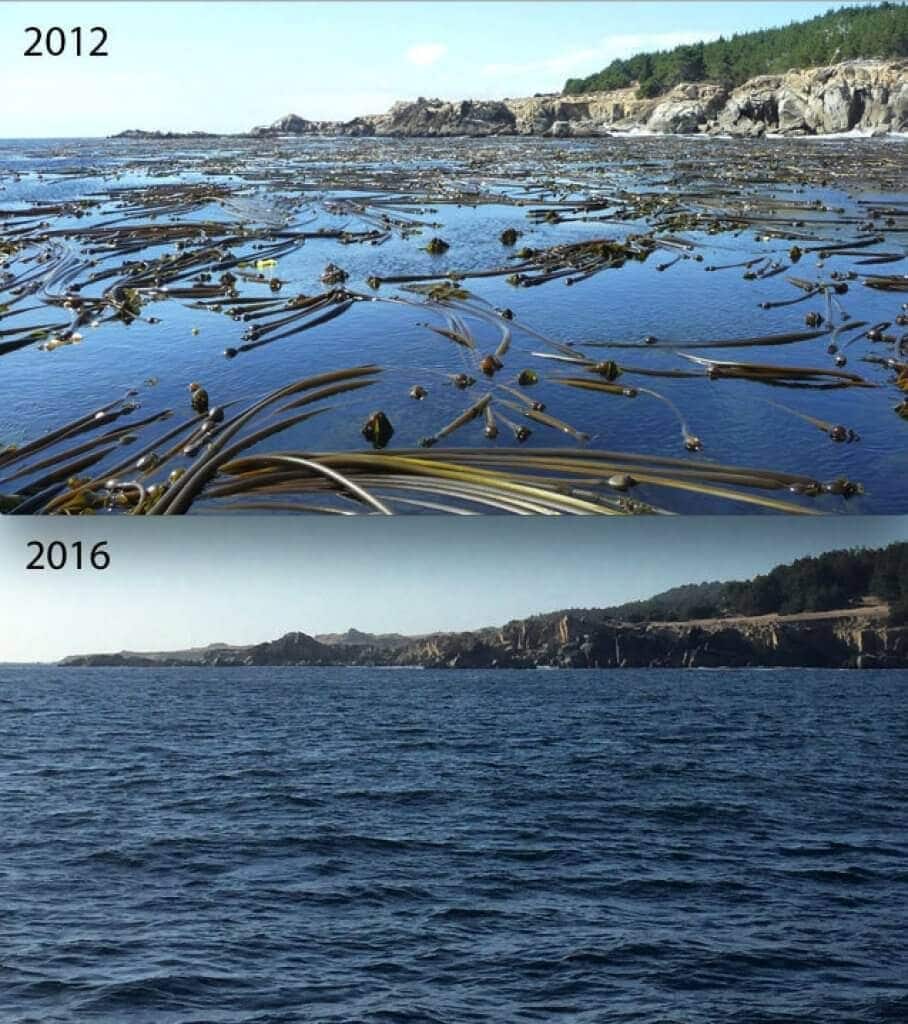Icebergs in the northern Weddell Sea off Antarctica. Photo Credit: John Sonntag / NASA
In the same way that heat waves heat the earth and increase the temperature of the air, there are also heat waves on the surface of seas and oceans. This phenomenon occurs when, for at least 5 consecutive days, the water temperatures of a particular oceanic region remain above the usual average, and its duration can vary from several weeks to several months.
In recent years, these events have become increasingly frequent and long-lasting, causing considerable changes in coastal and marine ecosystems. Just as a fire can destroy thousands of hectares of vegetation and kill countless animals, marine heat waves destroy large portions of marine life, and can completely change an infinite number of ecosystems.
The list of negative effects is long: increasing the mortality of species of birds, fish, whales and sea lions, along with other marine mammals; they can trigger toxic seaweed blooms and greatly reduce the supply of nutrients in the oceans; coral bleaching and trigger movements of fish communities into colder waters, along with the steep decline of the polar ice caps. All these effects collaborating in the conditioning of the planet’s climatology, as well as the economy and changes in the redistribution of species and other natural environments of flora and fauna at a global level.
 The kelp population along the California Coast has declined over the years. Photo Credit: NOAA
The kelp population along the California Coast has declined over the years. Photo Credit: NOAA
According to the study “Emerging risks from marine heatwaves” by Thomas L. Frölicher and Charlotte Laufkötter, the causes that contribute to the formation and disappearance of hot water bodies are still unknown. It is valued that they may derive from oceanic or atmospheric forcings by human activity, such as overfishing and/or pollution, both of the water of the seas and of the air. Together, global warming and anthropogenic climate change on the planet could be increasing the number of heat waves over time.
“Recent heat waves have had a serious impact on marine ecosystems, which take a long time to recover afterwards, if they ever fully recover,” explains Charlotte Laufkötter.
As a case study, in 2011 on the west coast of Australia, a marine heat wave that hit the area caused the water currents to become unusually warmer, which entered the kelp forests near the coast and they reduced their population radically. This had a negative impact on a large part of the species that lived there, such as lobsters and scallops, which led some of the most important fishing companies in the area to carry out their closure, some without recovering today; and the eating habits of some other species in the region were modified.
 Bleached coral on Australia’s Great Barrier Reef near Port Douglas. Photo Credit: Brett Monroe Garner / Greenpeace via Reuters file
Bleached coral on Australia’s Great Barrier Reef near Port Douglas. Photo Credit: Brett Monroe Garner / Greenpeace via Reuters file
Not only marine ecosystems are easily harmed by warmer waters, but also the global population that depends, to a large extent, on the oceans, whether as a source of oxygen, a sink for carbon dioxide or a source of food. Assuming a great danger to the planet and its inhabitants.

